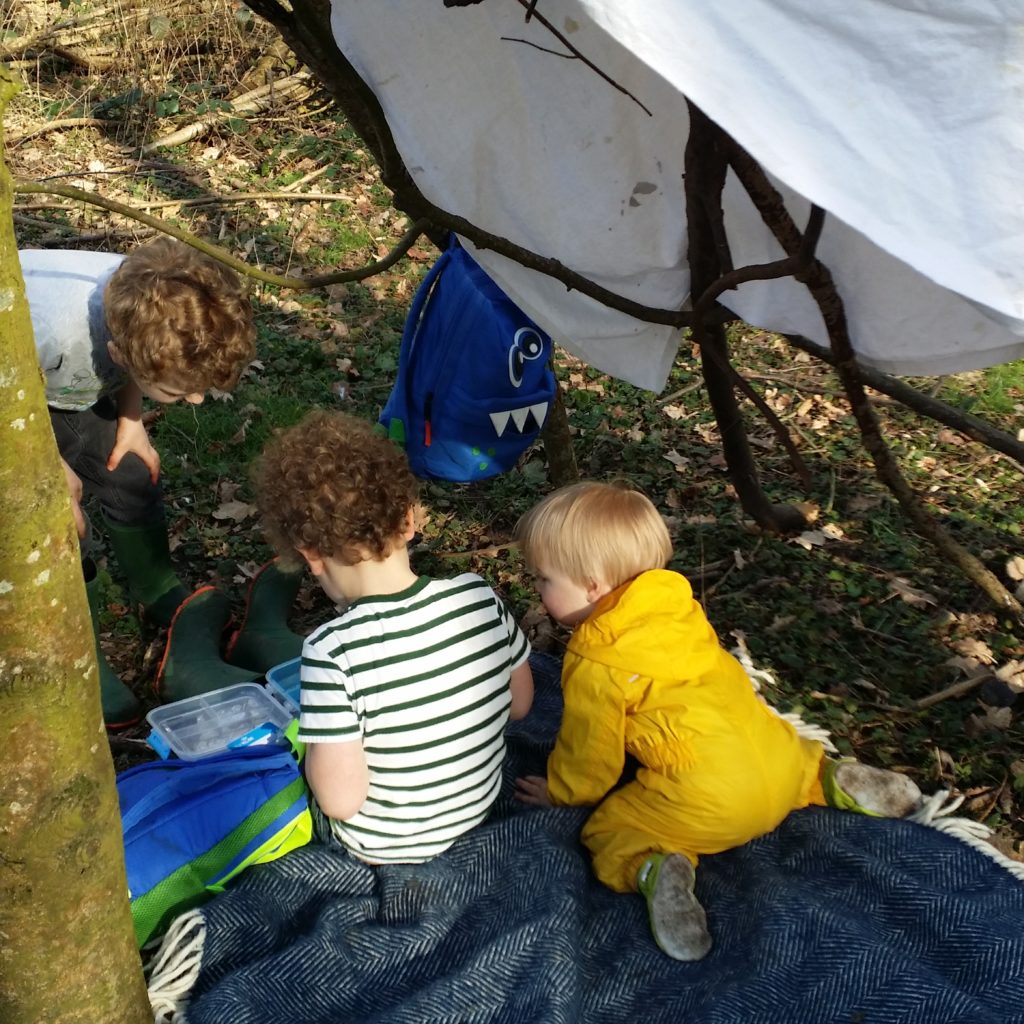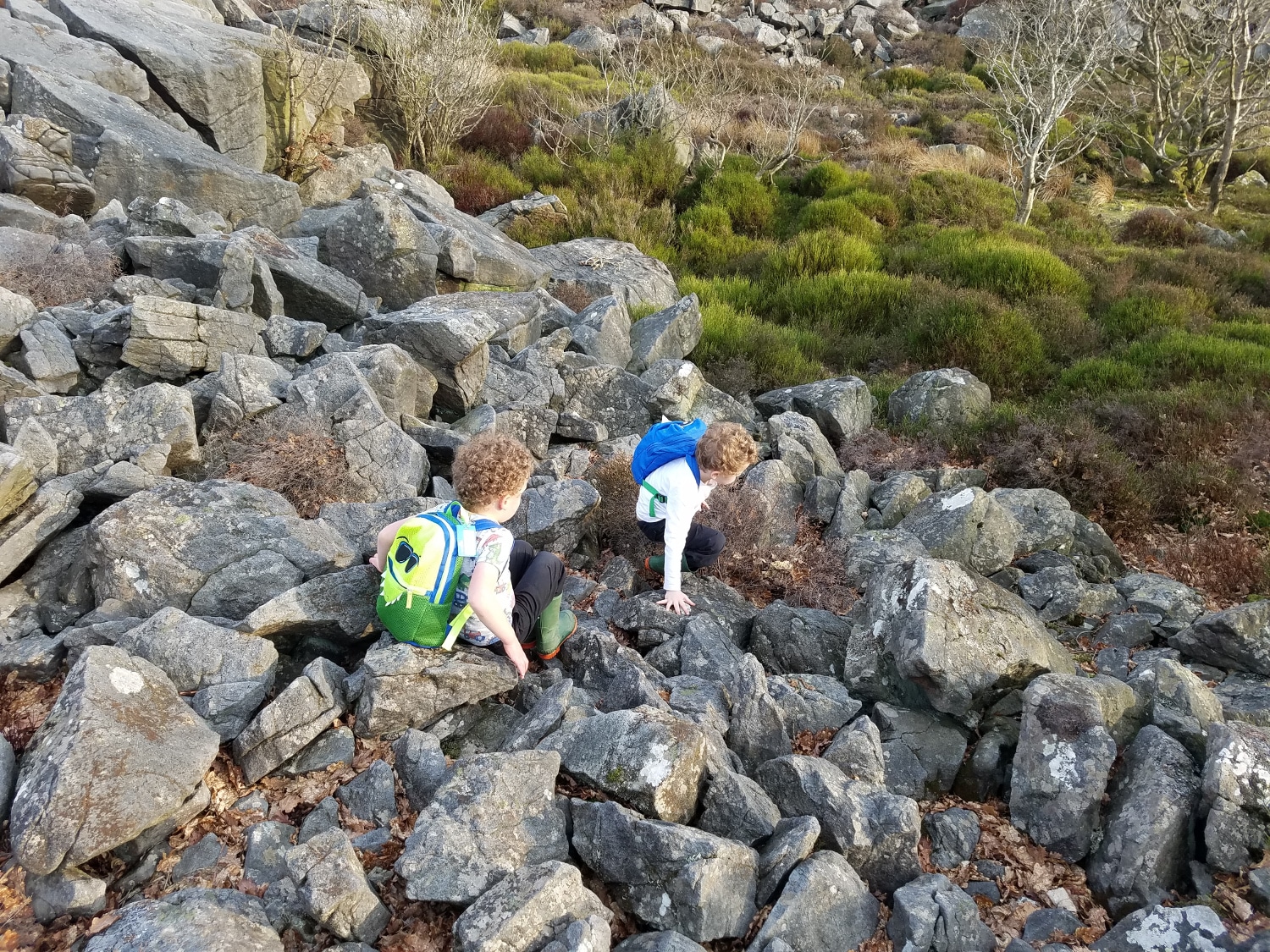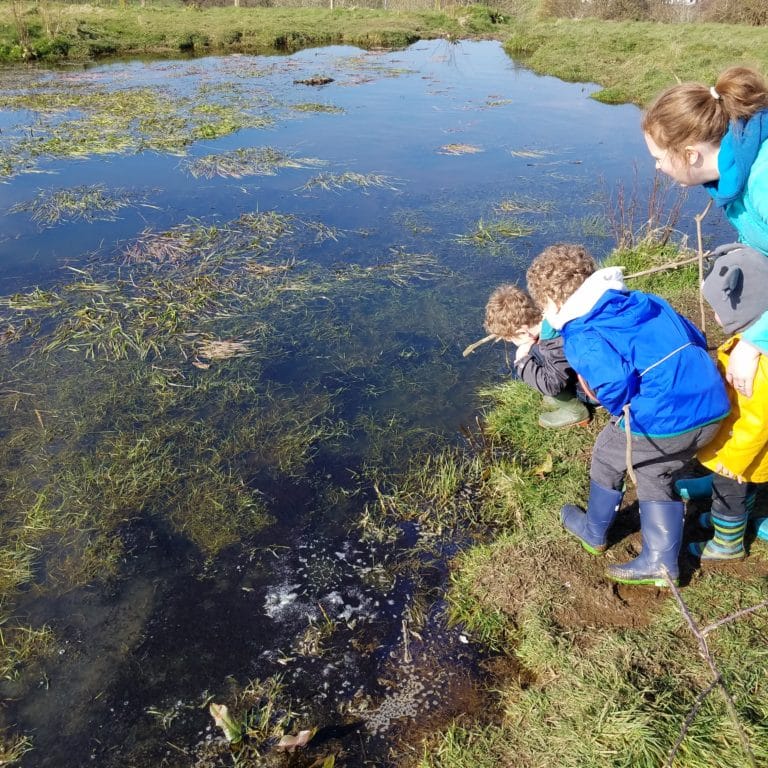The Truth About How Much Time Our Kids Should Spend Outside
In Home Education, Charlotte Mason famously (or perhaps infamously) says that children should spend four to six hours outside every day – a bit less in winter. Time and time again, I have seen parents respond in one of two ways. Some panic at the thought that they are failing their children by not meeting this target. Others completely dismiss the idea, arguing that it is unrealistic for already overworked parents.
Both sets of parents take this recommendation as a burden. One set buckles underneath its weight. The other casts it off completely and leaves it behind. I think there is a middle ground to be pursued between both groups. Unpicking Charlotte Mason’s writing about outdoor play and the context in which she was writing can help us find that middle ground.

Charlotte Mason wrote Home Education to specific people in a specific time.
Charlotte Mason lived, worked, and wrote at the turn at the 19th century. Her teaching college was located in Ambleside, in the north west of England. Immediately we can determine a few things just from this context:
- Families in the upper and middle classes would almost certainly have had at least some form of household help. Imagine someone else cracking on with the laundry while you were out with the kids! (While Charlotte Mason firmly believed that her educational principles for all children, regardless of social class, there are enough mentions of governesses in Home Education to suggest that she was writing to people, in this case, who were reasonably likely to have had a few extra hands at home.)
- The climate in Ambleside, and England in general, is pretty mild. I know this because I live about forty miles south of Ambleside. It does get cold in the winter and warm (occasionally hot) in the summer, but it’s nothing like the freezing, blustery winters of Indiana where I grew up, or the hot and humid summers. We even get to enjoy a reasonably long spring and autumn, seasons which Indiana seems to race through as quickly as possible.
So if you are a mother of young children, living in England, with a cook and probably a nanny, then Charlotte Mason is talking to you when she says to take your children outdoors four to six hours a day in decent weather.
Most of us do not fit this profile. So what are we meant to take from this?

We need to seek out principles, not prescriptions.
When a doctor writes us a prescription, he or she takes into account a wide range of variables. The symptoms of our ailments, other medications we are taking, our medical history, our height, weight, gender, and so on. We might have the exact same problem as another person, but we could receive a completely different dose, even a different medicine, depending on our individual circumstances.
Charlotte Mason is giving her contemporary readers a prescription for outdoor play in this section of Home Education (affiliate link). While that means it’s not directly transferable to our particular situations, there are still principles within this passage that we can and should apply.
Outdoor play for children is incredibly important.
Charlotte Mason states, “Let me repeat, that I venture to suggest, not what is practicable in any household, but what seems to me absolutely best for the children”. Our response shouldn’t be, ‘“Four to six hours? We could never manage that!” Instead, we should respond with, “Four to six hours? Outdoor play must be really a crucial part of childhood!”
Outdoor play for children should be prioritized in line with its value.
The goal is not to tick off the required number of hours spent outdoors each day. The goal is to be the type of family who prioritizes outdoor play appropriately. It’s almost certain that outdoor play should be more important than TV. It may be more important than your child participating in an extracurricular club that meets indoors. It may not be more important than visiting an elderly friend or relative for a few hours in a nursing home.
We need to look for what we can do to get our children time outdoors.
In this passage, Charlotte Mason is speaking to mothers living in towns and cities, without immediate access to lovely, relaxing outdoor places. Her challenge to these mothers was to think outside of the box and to challenge their perceived barriers to outdoor play for their children. We can do the same thing. What keeps us from taking our kids out to play? Weather? A tight schedule? Distance from green spaces? Look for ways to overcome these restrictions. It might be in the form of rain gear for drizzly days, picnic lunches on busy days, or scheduling in trips to state parks, beaches, or nature centers at every opportunity.
No one is going to blame you for keeping your child indoors when they would be at risk of frostbite or heatstroke outdoors. Charlotte Mason’s concern wasn’t getting our children outdoors at all costs. She recognized that stretches of outdoor play were necessary for children to develop a relationship with the natural world. She believed this relationship was a child’s right. Our responsibility as parents is to look for ways to facilitate that relationship in our individual contexts.
Want to find your feet with the Charlotte Mason Way?

Grab my eight day mini course on the Charlotte Mason Essentials when you subscribe to my newsletter. You’ll get daily emails, a mini podcast series, and a printable workbook with reading assignments and action steps. You’ll be on your Charlotte Mason journey in no time!








Wonderful! I couldn’t agree more! 🤗 There are days we can spend the whole day outside, but most days it’s hard. But because I firmly believe in this principle, I
always manage to squeeze in 15 min here and 15 min there when it’s really tough.
I would also add that it was easier to have 4-6 hrs outdoor during Miss Mason’s time because trips by foot to the post office or market (ect.) were common.
Oh definitely – Sofia – even now, I have the kids out on their scooters to go into the city centre, or to walk to swim lessons. It helps to have places to go on foot. And it all counts, even if it’s just little bits at a time!
So interesting! I’m reading from IN and appreciated your perspective knowing what it’s like over here 🙂 The Lord has given us a long and beautiful autumn this year, but usually they do go by so fast!
I love this modern adaption that takes the pressure off, I struggle with the knowledge that air conditioning is relatively new so I feel like there ought not be an excuse for more time outside. Love from tripple digit texas
Air conditioning might be new, but cultural adaptations definitely aren’t – before a/c, surely people were taking siestas and finding other ways to keep cool!